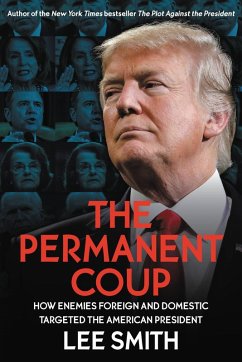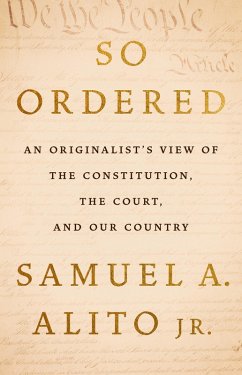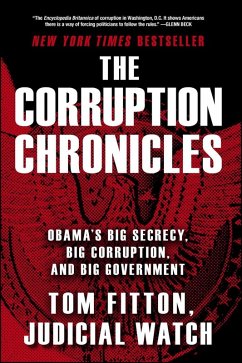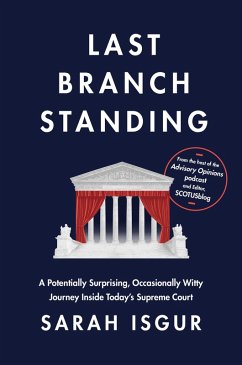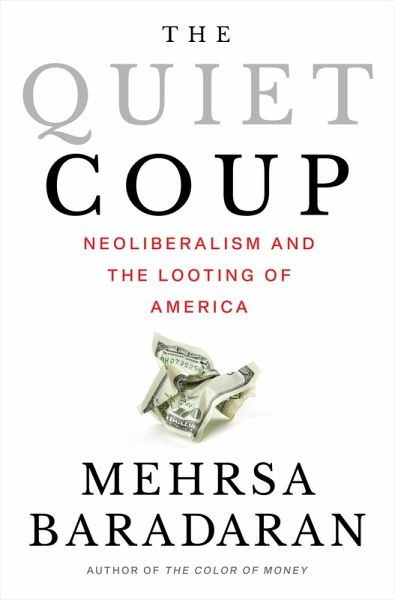
The Quiet Coup (eBook, ePUB)
Neoliberalism and the Looting of America

PAYBACK Punkte
8 °P sammeln!
"[A]ccessible and intellectually rich...Essential reading to understand the economic state of the nation." Kirkus Reviews (starred review) The celebrated legal scholar and author of The Color of Money reveals how neoliberals rigged American law, creating widespread distrust, inequality, and injustice.With the nation lurching from one crisis to the next, many Americans believe that something fundamental has gone wrong. Why aren't college graduates able to achieve financial security? Why is government completely inept in the face of natural disasters? And why do pundits tell us that the economy ...
"[A]ccessible and intellectually rich...Essential reading to understand the economic state of the nation." Kirkus Reviews (starred review)
The celebrated legal scholar and author of The Color of Money reveals how neoliberals rigged American law, creating widespread distrust, inequality, and injustice.
With the nation lurching from one crisis to the next, many Americans believe that something fundamental has gone wrong. Why aren't college graduates able to achieve financial security? Why is government completely inept in the face of natural disasters? And why do pundits tell us that the economy is strong even though the majority of Americans can barely make ends meet? In The Quiet Coup, Mehrsa Baradaran, one of our leading public intellectuals, argues that the system is in fact rigged toward the powerful, though it wasn't the work of evil puppet masters behind the curtain. Rather, the rigging was carried out by hundreds of (mostly) law-abiding lawyers, judges, regulators, policy makers, and lobbyists. Adherents of a market-centered doctrine called neoliberalism, these individuals, over the course of decades, worked to transform the nationand succeeded.
They did so by changing the law in unseen ways. Tracing this largely unknown history from the late 1960s to the present, Baradaran demonstrates that far from yielding fewer laws and regulations, neoliberalism has in fact always meant moreand more complexlaws. Those laws have uniformly benefited the wealthy. From the work of a young Alan Greenspan in creating "Black Capitalism," to Supreme Court Justice Lewis Powell's efforts to unshackle big money donors, to the establishment of the "Law and Economics" approach to legal interpretationin which judges render opinions based on the principles of right-wing economicsBaradaran narrates the key moments in the slow-moving coup that was, and is, neoliberalism. Shifting our focus away from presidents and national policy, she tells the story of how this nation's laws came to favor the few against the many, threatening the integrity of the market and the state.
Some have claimed that the neoliberal era is behind us. Baradaran shows that such thinking is misguided. Neoliberalism is a failed economic ideait doesn't, in fact, create more wealth or more freedom. But it has been successful nevertheless, by seizing the courts and enabling our age of crypto fraud, financial instability, and accelerating inequality. An original account of the forces that have brought us to this dangerous moment in American history, The Quiet Coup reshapes our understanding of the recent past and lights a path toward a better future.
The celebrated legal scholar and author of The Color of Money reveals how neoliberals rigged American law, creating widespread distrust, inequality, and injustice.
With the nation lurching from one crisis to the next, many Americans believe that something fundamental has gone wrong. Why aren't college graduates able to achieve financial security? Why is government completely inept in the face of natural disasters? And why do pundits tell us that the economy is strong even though the majority of Americans can barely make ends meet? In The Quiet Coup, Mehrsa Baradaran, one of our leading public intellectuals, argues that the system is in fact rigged toward the powerful, though it wasn't the work of evil puppet masters behind the curtain. Rather, the rigging was carried out by hundreds of (mostly) law-abiding lawyers, judges, regulators, policy makers, and lobbyists. Adherents of a market-centered doctrine called neoliberalism, these individuals, over the course of decades, worked to transform the nationand succeeded.
They did so by changing the law in unseen ways. Tracing this largely unknown history from the late 1960s to the present, Baradaran demonstrates that far from yielding fewer laws and regulations, neoliberalism has in fact always meant moreand more complexlaws. Those laws have uniformly benefited the wealthy. From the work of a young Alan Greenspan in creating "Black Capitalism," to Supreme Court Justice Lewis Powell's efforts to unshackle big money donors, to the establishment of the "Law and Economics" approach to legal interpretationin which judges render opinions based on the principles of right-wing economicsBaradaran narrates the key moments in the slow-moving coup that was, and is, neoliberalism. Shifting our focus away from presidents and national policy, she tells the story of how this nation's laws came to favor the few against the many, threatening the integrity of the market and the state.
Some have claimed that the neoliberal era is behind us. Baradaran shows that such thinking is misguided. Neoliberalism is a failed economic ideait doesn't, in fact, create more wealth or more freedom. But it has been successful nevertheless, by seizing the courts and enabling our age of crypto fraud, financial instability, and accelerating inequality. An original account of the forces that have brought us to this dangerous moment in American history, The Quiet Coup reshapes our understanding of the recent past and lights a path toward a better future.
Dieser Download kann aus rechtlichen Gründen nur mit Rechnungsadresse in A, D ausgeliefert werden.







